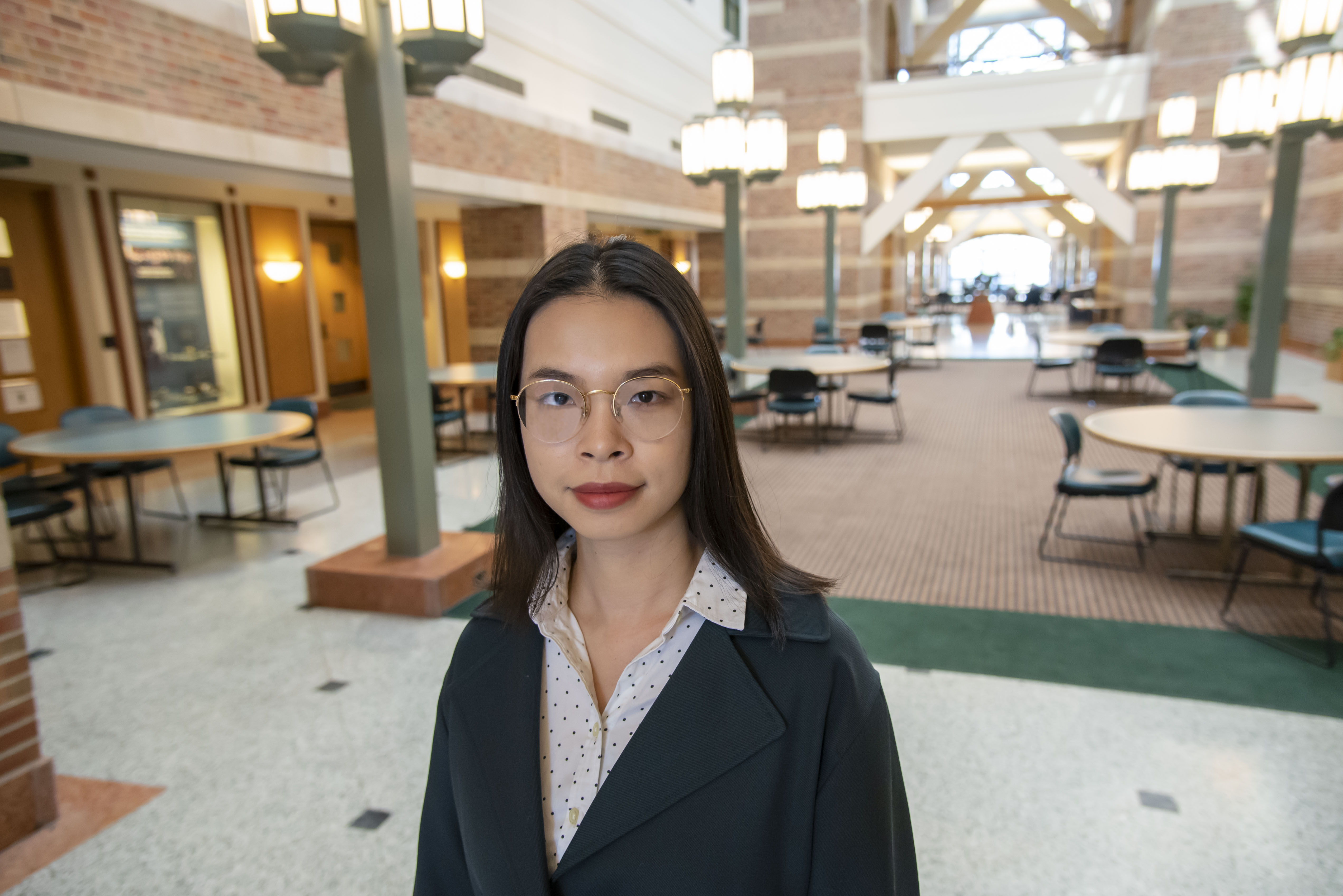Article
 Jialu Li
Jialu Li
Jialu Li is a sixth-year Ph.D. student studying electrical and computer engineering at the University of Illinois Urbana-Champaign.
At the Beckman Institute, Li contributes to the LittleBeats Project and researches automatic audio analysis of at-home family interactions to help monitor children's mental health at an early stage. She focuses on analyzing the vocalization patterns of parent-infant interactions to identify infant behaviors that may correlate with mental health problems later in life. For example, machine-learning algorithms that automatically extract and analyze conversations between children and adults.
Hometown: Kunming, China
What is the most important question you want to answer through your research?
The most important question I want to address is how to use machine learning algorithms to help parents and clinicians precisely identify children’s potential mental health problems at early stage.
What made you take an interest in your field? Do you have a personal connection to your work?
I became interested in my field when I saw the huge potential of machine learning algorithms in various possible applications at the beginning of my graduate study, and then I started working with my advisor to explore research problems about speech processing.
Beckman’s mission is to build a better world. How does your research make the world better?
My research is an initial step toward machine learning applications in a clinical setting. Training machine learning models requires a lot of labeled data. However, it’s often difficult to gather large amounts of data for clinical purposes, as there are many privacy and ethical concerns. As a student researcher, I’m learning new cutting-edge technologies from self-supervised models and making my algorithms robust on these small datasets that our team collected. This is really helpful for decreasing the need of labeled data on future machine learning research for clinical studies.
Describe a transformative moment or experience you have had at Beckman.
I’m amazed by the free book exchange program. Students and professors circulate their textbooks or research papers on the open table. I had a chance to grab several textbooks that related to my research and gave back textbooks I have read. This opportunity gave everyone in Beckman a chance to learn research work from all fields.
Being a student is hard. What advice do you have for the next generation?
My advice for the next generation is to explore different fields as early as possible and find the field that you are truly passionate about, and then keep working hard toward your goal. Then, you will have insights for particular research problems and become an independent researcher. For work-life balance, I work hard in the daytime during weekdays, and I will spend time on my hobbies when I’m free at night. I typically also work a few hours during weekends and spend rest of the day for resting or socializing with my friends. When I feel extremely tired, I will rest for a day and do nothing. In this way, I work much more efficiently when I’m fully charged and energized. Working and resting are equally important to me.
Who or what has influenced you the most?
My mother influenced me the most to choose to pursue a Ph.D. degree. My mother is a professor, and I grew up seeing her devoted to teaching and conducting experiments. She worked very hard to pursue a higher education degree despite the huge financial challenge and limited educational resources. She is passionate about science and research and a role model for being an outstanding female researcher.
What are you passionate about?
I’m passionate about my research work. I’m always interested in learning new problems and getting excited to try new methods in this field.
Imagine that you're hosting a new podcast. What is it about?
I [would] like to share my experiences about problems I have encountered in my life and what I did to deal with those. I wish to help people who suffer from mental illness feel a bit better and find hope and optimism in their life.
What is your favorite book and what life lesson has it taught you?
I don’t have a favorite book, but my favorite movie is “Forrest Gump.” I watched it five times thoroughly. The life lesson I learned is that life is full of uncertainties. If negative things happen, I just need to keep running until I put all the past behind me and move on. The running movie scene always gives me resilience to my life hardships.
Tell us about your post-university plans!
I will most likely become a research scientist in a speech processing field. If possible, I’m also open to coming back academia if I can find good opportunities.
Speed round:
Favorite song at the moment: My favorite song is "Try" by Colbie Caillat.
Summer activities: This summer, I worked at the Meta AI lab as a research intern on a project about automatic speech recognition at the Menlo Park office in California. I visited the Yosemite National Park and Monterey city near the Pacific Ocean.
What do you like to do in your free time? I like baking breads. I’m also learning how to play tennis. For weekend nights, I usually come to the rec room to play pool.
Li is working in an interdisciplinary statistical speech technology group under the supervision of Mark Hasegawa-Johnson, a professor of electrical and computer engineering. She also collaborates with Nancy L. McElwain, a professor of human development and family studies, and Karrie Karahalios, a professor of computer science.
Beckman Institute for Advanced Science and Technology